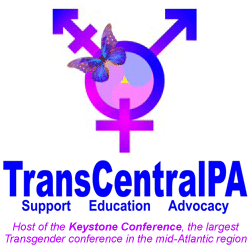U.S. Professional Association for Transgender Health
Please do not take this as shameless self-promotion but I have been elected to the Board of Directors of USPATH by the membership of WPATH in the United States. As far as I know, I am the only trans person on the board, the only non-provider, and the only pure scientist. For us it is a chance to shape the future.
The reason I am writing this is that I will need your help. Transgender people know a lot about being transgender and, in the past, some 55% of transgender people reported that they had to educate their providers. Today, knowledge of being transgender is more widespread in provider communities but is far from complete.
WPATH is the World Professional Association for Transgender Health which publishes the Standards of Care (SOC) document for transgender health and treatment. USPATH (US Professional Association for Transgender Health) is the newly formed subsidiary organization of WPATH. Its sister organization, EPATH has been up and running for since 2013 and represents all of Europe. The SOC for providers (e.g. doctors, mental health professionals) is the international standard for how transgender people are supposed to be treated. Us older folks will remember it as the Harry Benjamin Association Gender Dysphoria Association.
I expect that USPATH will be involved in several activities to help transgender people. First, we will be able to make recommendations to WPATH for the SOC and to the American Psychiatric Association for the Diagnostic and Statistical Manual. It is a chance to further depathologization of transgender people. WPATH has been doing that for years and depathology efforts apply to the broad spectrum of people under the transgender umbrella including gender non-conforming, genderqueer and gender fluid folks. It also affects those who crossdress for recreation and who disclaim being transgender. I happened to have dinner last night with some Tri-Ess members who insisted that they were not under the transgender umbrella. However, even those folks should be concerned about the stigma that transgender pathologization creates.
Second, it is a chance to provide education to the medical and mental health communities about transgender people. WPATH has started doing Continuing Education Courses, primarily for those providers who are directly involved in such work as transition, affirmative childhood treatment and endocrinology. I attend one of the first courses as a proctor for American Psychological Association members who attended that course. It was notable because the audience included military providers, some in uniform and some in civilian clothes. WPATH is now providing a “certification” for providers that includes 50 hours coursework including the WPATH course, some supervised clinical exposure to transgender people and an exam.
Third, it is not enough just to educate the providers of transition and other services, we need to help professional schools like medical and nursing schools develop courseware that educate those providers that will come into clinical contact with transgender people with regard to non-transgender issues. That is just about all of them because transgender people are everywhere. For example, the professionals in emergency rooms that treat trauma from car accidents or those who treat the broader spectrum of internal medicine ailments. They need to know something about being transgender as well. In particular, they need to understand transgender etiquette in order to develop rapport with patients who happen to be transgender. Modern medicine depends on this provider-patient relationship and poor etiquette interferes with it. Another example I recently learned about comes from dermatology. In order to get certain drugs for acne and other skin conditions including certain skin cancers, the FDA requires special conditions be met to avoid prenatal exposure to the drug which causes neurocognitive deficits. According to some trans people I have talked with, it appears that these conditions do not take being transgender into consideration. So even dermatologists will need to understand about transgender people to understand how to prescribe these drugs and advise the FDA.
Fourth, professional schools have made some progress in transgender education. Until recently, most medical schools only had one very short block of instruction on all of LGBT issues, if any at all. Professional schools have augmented their offerings with more instruction time and they are experimenting with whether being transgender should be a special topic or whether it should be integrated with all topics. Currently there is no standardized curriculum. USPATH and WPATH can help address these education issues.
Finally, USPATH will conduct science meetings and symposia. I attended the first one in February 2017. That is where I got some good information on current transgender science that I passed along through this blog. Since I am the “science guy” on the USPATH board I expect to be involved in those meetings and the dissemination of results.
As many of you know, unrelated to my USPATH duties, I am currently writing a handbook for providers that address all of the above issues. What I learn from USPATH and you all should help me with this effort.
As I said at the outset, I can use your help. I need your suggestions in all of these areas and more:
- How should we pursue depathologization without losing financial coverage for needed provider services?
- What provider help do non-transitioning transgender people need?
- What should providers of transgender services know about being transgender?
- What should providers in non-transgender specialties know about being transgender?
- What etiquette rules should providers know about?
- What science topics are important to transgender people?
You can leave messages for me here in TGForum or you can tweet me @danajbevan https://twitter.com/danajbevan
Please do not send me any confidential information or ask for treatment because I am not a provider. Thank you.
Care to make a comment on this post? Login here and use the comment area below.
Category: Transgender Body & Soul











Posted on behalf of Rhonda: What provider help do non-transitioning TG people need?
Counselors who understand that not everyone who wears clothes of the opposite sex have a choice about it, nor do they view themselves to be of the gender they express or want to transition; counselors who realize that this “affliction” can be dealt with in nearly all cases without giving rise to divorce, and will encourage relationship-building rather than being inclined to think that marriages and families cannot deal with it without negatively impacting the family unit. Relationship-building tools, acceptance, understanding are key. Associating crossdressing with being transsexual can destroy relationships because of the connotations this has in today’s society, which often sees the latter but seldom sees the well-hidden and secretive former (the silent majority), folks who seldom get out in public at all, let alone seek therapist
What should providers of TG services know about being TG?
The wide range of gender variance. If defined to include not just differences in gender identity but differences in expression (the American Psychiatric Society definition rather than the WPATH definition), this would extend to the wide range of gender expression also. The term “transgender” needs to be better and more consistently defined to answer this question, but I think the bottom line is that counselors need to recognize that crossdressers exist and have needs which differ from those generally considered by the public and WPATH to be “transgender”. We have to quit fighting over terminology and whether someone who is a crossdresser is destined to have a need to go further, and recognize that there are significant differences in needs which must be addressed… counselors need to understand these differences in order to be able to help each meet their respective needs.
What should providers in non-tg specialties know about being TG?
Gender variance does not imply anything about sexual orientation. One cannot make assumptions as to causes (nature vs. nurture, for instance), but should recognize that in many, if not most, cases causes are genetic. One should affirm one’s internal gender identity and need for expression rather than try to insist upon changing it.
What etiquette rules should provider know about?
Pronouns are important to most. Most prefer to be addressed in the manner they present, but this is not universally true and should not be assumed.
One’s gender identity and expression needs should be honored and provided for (such as in restroom useage); one has a right to be addressed and treated in the manner they believe fits their personal belief system… i.e., one who believes themselves to be female (or male, or other) or who has a need to present that way should be treated as such.
What science topics are important to tg people?
Genetic research is helpful in determining causes, which matter to some, at least. It at least generally reinforces the idea that who we are is not a choice but a birthright and should be honored/respected. Such research also should prove helpful in learning more about tg people and perhaps treating some… e.g., if osteoporosis or autism is highly correlated with TG, should we be more aware of this and better able to treat? In my situation, I was able to deduce that I might have osteoporosis by observing a loss of height. But as this is generally considered a “woman’s disease” I had to argue for a bone density test, checking calcium and vitamin levels, and such to “prove” my condition and find treatment that would have been more readily discovered were I a woman but not considered because I was born male.
There are some excellent documentaries, such as National Geographic’s “Gender Revolution” and Morgan Freeman’s “Through the Wormhole” films asking questions such as “Are there more than two sexes?” and “is it necessary to have an x chromosome to sustain life?” which are eye-opening. There are studies showing how genes can be modified, even naturally, so that a male can become female or vice versa. This opens up a lot of possibilities. For instance, might it be possible for one to transition without surgery? Observations of plants and animals, as well as human evolution are leaping forward at light-speed as DNA sequencing and other scientific discoveries are changing our understandings in dramatic ways.
All studies I have seen base findings upon studies of transsexuals. These are believed to be far outnumbered by crossdressers, but getting crossdressers to participate in research appears to be extremely difficult. As a result, I know of no studies which establish a definitive connection between the two, such that one can presume conclusions from studies performed to date apply to crossdressers. My belief is that they do, but I’d be interested to see that assumption validated or invalidated.
Rhonda
Congratulations Dana. You will represent us well. I am hoping to provide feedback too. Milesa from Michigan.
Thank you.